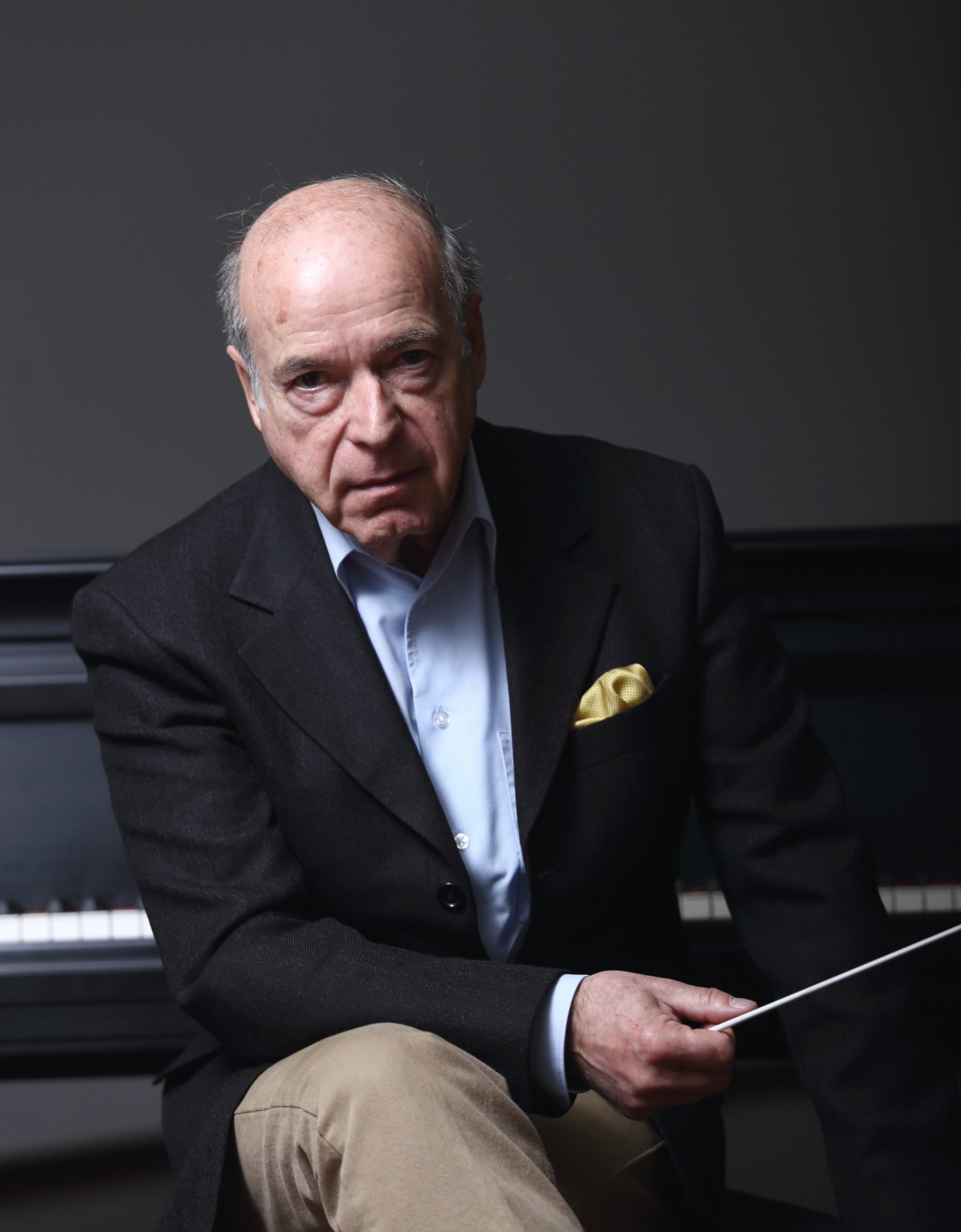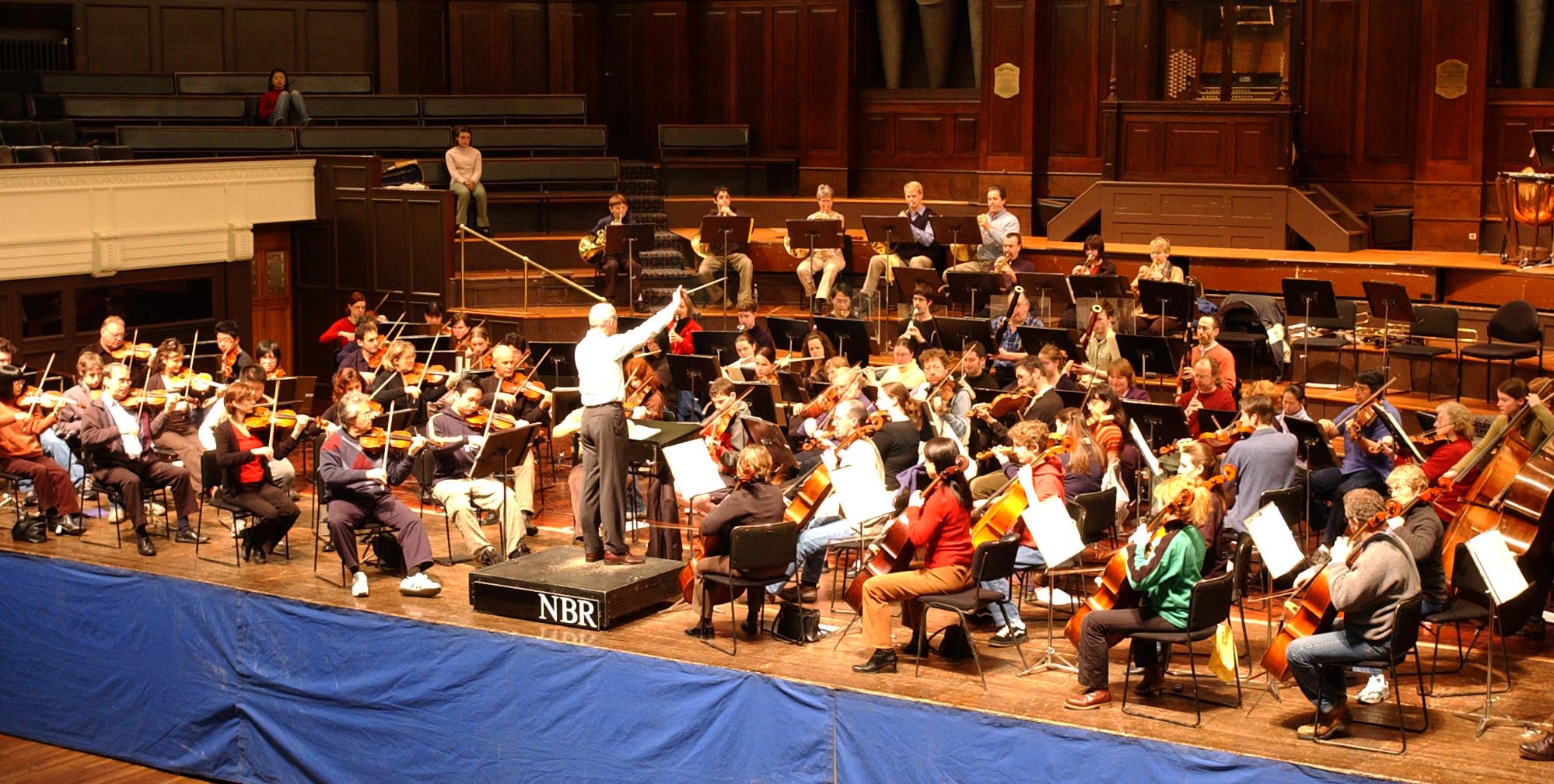
A friendship forged in the early days of their careers has never waned for international conductors James Judd and Matthias Bamert.
So it is no surprise that Bamert, a renowned Swiss conductor, is coming to perform with the Dunedin Symphony Orchestra (DSO) given Judd, New Zealand Symphony Orchestra music director emeritus, has been appointed the DSO’s 2024-2026 principal guest conductor.
"James has been my best friend for over 50 years — imagine, we have a very close relationship. You say conductors always hate each other, but we always liked each other."
Swiss-born Bamert and British-born Judd met at the Cleveland Orchestra, Ohio, where they were assistant conductors — "both beginners" — under distinguished American conductor Lorin Maazel a "very, very long time ago".
"He asked me to do this engagement. He does what I tell him and I do what he tells me. This friendship has survived all sorts of different situations."
As a result of the friendship, Bamert has been out to New Zealand many times.
"I remember Dunedin. I’ve been there several times with the New Zealand symphony [he was principal guest conductor for the NZSO 2000-05]."
Travelling across the world to perform is commonplace for Bamert who has also lived in Paris for four years, spent a year in Germany, four years in Austria, nine years in America and 21 years in London. He now lives back in Switzerland.
"I spend most of my life travelling. I’m not a very good Swiss, whatever that means."
While his love of music may have drawn him away from Switzerland, it was growing up there, in a household of teachers, that developed that love in the first place.
"All the kids — I have a brother and a sister — we played instruments. We had music at home. I tried all sorts of instruments and eventually I ended up with the oboe; I played the oboe. I just liked it."
To further his studies in oboe, he headed to Paris, where he also studied composition and conducting.
"I ended up in an orchestra in Salzberg just to get orchestra experience."
It was at the city’s music festival that he met George Szell, considered one of the 20th century’s greatest conductors and conductor of the Cleveland Orchestra, at the time the most successful American orchestra.
"For reasons I can’t explain he invited me to America."
Despite being principal oboe of the Salzburg Mozart Orchestra, he gave up playing the instrument to compose and conduct. Moving to America, he became assistant conductor in Cleveland under Leopold Stokowski and then resident conductor under Maazel.
"They were the big conductors at that time."
In the beginning Bamert was on a stipend, and had no money.
"I eventually had to sell my instruments to eat. I was unbelievably poor. Today I’m not poor any more, I tell you, but I worked for it."
Giving music up was not an option.
"No — that was my life. Imagine how that was for a Swiss hillbilly to go to America with the great orchestras. It was fantastic, with these great musicians and conductors. Being around really great people is a wonderful experience."
He then had an opportunity to return home, after a request for him to take over the Swiss Radio Orchestra (1977-83). He then pursued his career to London, where he worked with the BBC Symphony Orchestra, London Philharmonic, City of Birmingham Symphony Orchestra and BBC Philharmonic, featuring regularly in the BBC Proms.
He has also served as principal guest conductor of the Royal Scottish National Orchestra and as associate guest conductor of the Royal Philharmonic Orchestra in London.
Bamert was also music director of the London Mozart Players for seven years, and was behind its series of recordings of works by “contemporaries of Mozart”, which has already exceeded 75 symphonies. As part of its 50th anniversary celebrations in 1999, he conducted the players in the BBC Proms, in Vienna and at the Lucerne Festival.
"Like most composers who come to conduct, once they become conductors they dry up. They can’t compose any more.
"When I was a composer I woke up the middle of the night with music in my head; now I’m a conductor I wake up in the middle of the night with somebody else’s music in my head.
"To be a good conductor you have to learn so much music, and identify with this music in order to perform it well, so it doesn’t help composing."

"I used to say ‘no music is safe from me’ but what happens is other people think, ‘oh you do this very well’, so you get engaged and made a specialist by other people."
His contemporaries of Mozart series is an example of this, he says.
"At that time nobody really knew, so I started this."
He was also asked to take over one of the of the biggest music festivals in the world, the Lucerne Festival, which he did for six years. In 2017 he returned to celebrate his 75th birthday conducting at the festival.
"We built a concert hall and it was very, very tiring because my predecessor and successors did it full time, whereas I did [it] next to my conducting career, which was very stressful."
After that he came out to New Zealand as principal guest conductor of the NZSO and became music director of the West Australian Symphony Orchestra.
Bamert, who is a prolific recording artist with more than 80 CDs to his name, has also regularly travelled to Japan, conducting its top orchestras. In 2017, he was appointed principal guest conductor of the Daejeon Philharmonic Orchestra, in South Korea, and in 2018 became chief conductor of Sapporo Symphony Orchestra in Japan.
However, this year Bamert, who is a grandfather to five, has made an important decision.
"Now in February I gave up my music directorship after six years in Sapporo in Japan, so right now I’m freelance but on the other hand I’m 81 — most people are retired at that age, I’d say."
That is not to say he is considering retiring — he is coming to New Zealand and then a month later returning to Japan.
"I still enjoy conducting and as long as other people think I enjoy when I’m conducting, I’ll do it."
The travel comes with the job — he has performed on every continent — and being able to travel comfortably in first or business class is necessary.
"If I arrive and I have to work, I have to be in good shape. I’ve travelled all my life. It’s not getting easier. I don’t have to do it, not every conductor travels."
Bamert passes on his knowledge through masterclasses when he can.
"The most important thing, I tell young conductors find the magic of music. That is what it is all about. You have to find the magic of it and bring that out, that is what music is about."
As a conductor becomes more experienced, they learn to focus on what is important, he says.
"The conducting gets easier yes, the relationships with the orchestra, you know what an orchestra needs, what you can do for them, but magic is something else that is something you cannot learn, you have to find.
"When it all comes together and works — it is magic. What happens between an orchestra and a conductor when it really works is incredible, you are so close to each other. When the concert is over everyone goes his or her own way, but during the concert you are so close."
This is despite conductor and orchestra often not knowing each other for very long before performing.
"We speak the same language — music. You have to trust the musicians and they have to trust you."
In Dunedin with the DSO, the concert will be a combination of Judd’s thoughts, what the orchestra wants to do and his own input. So it will feature Beethoven’s Prometheus Overture, Richard Strauss and Brahms.
NZSO principal horn Samuel Jacobs will perform what is considered one of the most technically demanding of all French horn concertos, Strauss’ French Horn Concerto No.1.
Bamert says Strauss, who was only 18 when he composed the solo, challenged his father, a French horn player to perform the piece. He told his son it was unplayable, and the story goes, the son told the father he had to practice.
"He knew about horn playing as he learned it at home."
The concert will finish with Brahms’ Hungarian Dance No. 1, an encore piece, to end the concert with some excitement.
To see
Beethoven, Brahms and Strauss, Dunedin Symphony Orchestra, Dunedin Town Hall, April 20.












